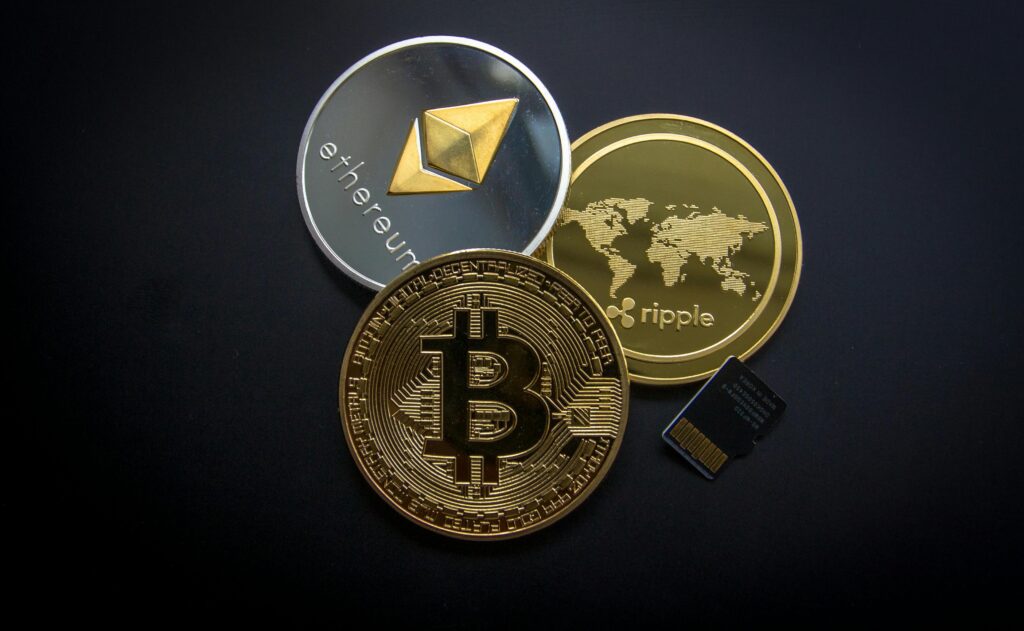
Occasionally, we will provide in-depth analyses of certain investments that we have had personal success with: in this case, cryptocurrency mining. There is no one-size-fits-all approach when it comes to investing, so we always recommend doing your own research and thinking about your individual risk tolerance before proceeding to invest in crypto miners.
Goal:
To buy cheap real estate in a country with low electricity costs, install a bitcoin miner, and enjoy hassle-free profits. The main objective is to mine cryptocurrencies. However, other potential benefits from this investment may include property appreciation, adding legitimacy to one’s residency, and generating short-term rental profits (if you water-cool your crypto miners and get creative with your setup, it may make the property habitable for Airbnb guests at the same time).
Find a country and property:
You need to look for a country with affordable, but stable electricity. Start your search by comparing energy costs around the world. According to Cable.co.uk, the five cheapest countries in terms of the average cost of one kWh are:
Libya (USD 0.007)
Angola (USD 0.013)
Sudan (USD 0.014)
Kyrgyzstan (USD 0.017)
Zimbabwe (USD 0.021)
You will need to further investigate each country, because in many cases countries have cheap electricity, but have unstable power grids. You want your crypto miner to run continually, without worrying about rolling blackouts or power outages.
You may also want to consider the country as a whole. Wars, natural disasters, political instability, etc. may jeopardize your cryptocurrency investment.
Finding a country with affordable real estate and electricity rates involves thorough research and consideration of various factors. To start, identify countries where the cost of living is generally lower. These are often found in regions like Southeast Asia, parts of Eastern Europe, and some areas in South America and Africa. Look into countries that offer residency or citizenship through investment programs, as these often indicate a welcoming attitude towards foreigners and potential benefits for property buyers.
Next, consider the average property prices and rental yields in your target countries. Websites like Numbeo and Expatistan can provide cost-of-living comparisons, including housing costs. Look for areas within these countries that are up-and-coming or less popular with expatriates, as they may offer better value for money.
When it comes to electricity rates, research the local providers and their pricing structures. Countries with abundant renewable energy sources like hydro, solar, or wind often have lower electricity costs. Look for areas where electricity is subsidized by the government or where competition among providers keeps prices low.
To ensure a smooth purchasing process, familiarize yourself with the local real estate laws and regulations, including any restrictions on property ownership by foreigners. Consider consulting with a local real estate agent or lawyer who can provide insights and guidance on buying property in the country of your choice.

What we did: We chose Paraguay, which is the 29th cheapest nation in terms of energy costs. We enjoy spending time in Latin American countries, and believe that Paraguay in particular has a lot of growth potential.
After being impressed by its young population, stable political situation, and growing economy, we decided to become residents and pursue real-estate investments in the country.
While we believe the apartment we purchased may be a viable short term rental in the future, we purchased it in order to house crypto miners.
Analyze the profitability of running crypto miners:
To figure out what kind of profits you can make mining (excluding real estate costs), try using the NiceHash Profitability Calculator. For example, if you bought a Bitmain Antminer S19 XP Hydro (255Th) miner for around $7000 USD, and the electricity costs in Paraguay are approximately $0.054 / kWH — you would expect to make $11.93 USD / day after electricity costs, assuming an exchange rate of 1 BTC = 43136.17 USD (the current price at time of writing).
Regarding real estate, if you conduct a quick property search, you can find small places in Paraguay starting as low as $8500 USD. With these low-priced properties, you cannot expect much in terms of resale value or short-term rental opportunities. However, as a storage unit for a crypto miner, they may make sense. You of course could spend more on a better property (and add additional revenue streams / possible capital appreciation, as we did), but for now we will use a cheap property as an example.
If, at the outset, you invest $8500 in the property, buy the miner for $7000, and spend another $2000 on other equipment (air conditioner, smart locks, etc.) and closing costs (buying a property in Paraguay is fast, easy and cheap!), the numbers look like this:
Total investment: $17,500 USD.
Yearly gross profit (assuming an exchange rate of 1 BTC = 43136.17 USD — this could go up or down): $7,180.16 USD.
That makes a gross yield of 41%.
Now that is a gross yield, of course you will have other ongoing expenses such as:
Electricity: $2498.08 USD / year
Property taxes (1% of the value of the property): $85 USD
Internet: $212.76 USD
Total expenses: $2795.84 USD
So now with the expenses figured out, we can calculate the net profit and yield:
Net profit: $4384.32 USD
Net yield: 24.9%
That is an attractive return, especially considering you don’t have to deal with people or the problems they bring with them on a regular basis (customers, Airbnb guests, property managers, etc.). If you do not mind people, and your property is suitable/your miner quiet enough, you can add short term rental profits to the above calculations.
Consider the pros and cons of a crypto mining venture:
Pros:
Profit Potential: Mining can be profitable, especially if you have access to cheap electricity and high-performance mining hardware. Successful mining can result in earning cryptocurrencies as a reward, which can be valuable if the price of the cryptocurrency rises.
Decentralization: Mining helps maintain the decentralized nature of cryptocurrencies. Unlike traditional currencies controlled by central authorities, cryptocurrencies are decentralized, and mining plays a crucial role in this aspect by preventing any single entity from controlling the entire network.
Transaction Verification: Miners verify transactions and ensure their security. This process helps prevent fraud and double-spending, making transactions on the blockchain secure and reliable.
Innovation and Development: The mining community is often at the forefront of technological innovation. Miners are constantly seeking more efficient ways to mine, leading to the development of new mining hardware and software that can benefit other industries as well.
Accessibility: Cryptocurrency mining is relatively accessible to anyone with the necessary hardware and internet connection. This accessibility allows individuals to participate in the cryptocurrency ecosystem and potentially earn rewards. This may be important if you are a freedom focused individual.
Real Estate Market Exposure: Your property value could increase, netting you a capital gain on your investment without the hassle of dealing with tenants or short-term rental guests. It can also give you better yields than the local market is ready for.
Simplicity: No clients, customers, or anyone else to manage/deal with. This is a very big selling point for us as we hate dealing with people while we are busy traveling, working and investing.
Independence: Cryptocurrencies operate in a decentralized system, so money earned is easily transferable without the need for traditional banking structures and regulatory requirements.
Easily Scalable: If it works well for you (and you have the proper electricity supply in your property), it is simple to add another miner and increase your revenue.
Cons:
Pricing Volatility: The volatility of cryptocurrency prices refers to the rapid and unpredictable changes in the value of cryptocurrencies such as Bitcoin, Ethereum, and others. Unlike traditional currencies or assets (depending on your views), which may experience relatively stable prices, cryptocurrencies are known for their high volatility — with prices often fluctuating significantly within short periods. This volatility could easily fit into the pro column. However, you need to be aware of the risk that the price of bitcoin could crash, making the entire endeavor worthless.
High Energy Consumption: Mining cryptocurrencies consumes a significant amount of electricity, leading to environmental concerns. The energy-intensive nature of mining has led to criticism and calls for more energy-efficient alternatives. This can be mitigated by using renewable energy, such as hydro or wind.
Hardware Costs: Mining requires specialized hardware, such as ASICs (Application-Specific Integrated Circuits) or GPUs (Graphics Processing Units), which can be expensive. Additionally, these components can become obsolete quickly as mining algorithms and technologies evolve.
Centralization Concerns: Despite its role in decentralization, mining has also led to concerns about centralization. Large mining pools and companies can have significant influence over the network, potentially undermining the decentralized nature of cryptocurrencies.
Regulatory Risks: Cryptocurrency mining operates in a regulatory gray area in many countries. Regulations can change rapidly, leading to uncertainty for miners regarding the legality and profitability of their operations.
Technical Challenges: Mining can be complex and technically challenging, especially for beginners. Setting up and maintaining mining hardware requires technical knowledge, and issues such as hardware failures or network difficulties can affect mining profitability.
Social Issues: You could receive complaints from neighbors or the condo board if your miner makes too much noise, heat, etc. This of course could be mitigated by properly selecting your real estate or purchasing a house instead of a condo.
Theft: Someone could break into your unoccupied apartment and steal or damage the mining equipment. You might want to consider a security system or other methods to protect your assets.
Closing notes about crypto miners:
What we like about this investment strategy is that if the mining operation goes to hell, you can always treat it as a “regular” real estate investment and proceed with long-term or short-term rentals. Additionally, if you are full-time nomads like us, it never hurts to have an address, deed, electricity / internet bills, etc. in a territorial tax country. Depending on the country, owning property may help you obtain or legitimize a residency, simplify your tax situation, or be a benefit in other areas of your life.
Ignoring the risks of crypto, this was one of the better investments we have made. We are enjoying a high yield (~25%), we own a property that takes less time to manage than any of our other real estate holdings, and we have added legitimacy to our Paraguayan residency — all for less than $20,000 USD. At that price, we are quite happy to take the risks associated with the crypto market.
We hope you have found this discussion of crypto mining thought-provoking. If you are looking for some other investment-related content, check out our articles: Harvesting Wealth: Invest In Agriculture, Buying Real Estate Abroad and Gold Investing 101.
Sources:
https://www.cable.co.uk/energy/worldwide-pricing/#pricing
https://tokentax.co/blog/best-bitcoin-mining-machines
https://www.nicehash.com/profitability-calculator/bitmain-antminer-s19-xp-hyd-(255th)
https://www.century21global.com/en/l/homes-for-sale/paraguay?sort=PRICE&order=ASC
https://www.numbeo.com/cost-of-living/country_result.jsp?country=Paraguay